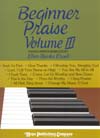- |
User Links
This is the Day
This is the day (This is the day)
Paraphraser (st. 1): Les Garrett (1967)Tune: THIS IS THE DAY (Fijian)
Published in 48 hymnals
Audio files: MIDI
Representative Text
This is the day, this is the day
that the Lord has made,
that the Lord has made;
we will rejoice,
we will rejoice and be glad in it,
and be glad in it.
This is the day that the Lord has made;
we will rejoice and be glad in it.
This is the day,
this is the day that the Lord has made.
---
Éste es el día, éste es el día
que el Señor creó,
que el Señor creó;
me alegraré,
me alegraré alabándole,
alabándole.
Éste es el día que el Señor creó;
me alegraré alabándole.
Éste es el día,
éste es el día que el Señor creó.
Source: Santo, Santo, Santo: cantos para el pueblo de Dios = Holy, Holy, Holy: songs for the people of God #379
Paraphraser (st. 1): Les Garrett
Rv Les Garrett New Zealand/Australia. Born at Matamata, New Zealand, he graduated from New Life Word of Faith Bible School at Tuaranga, NZ. He married wife, Marjorie (last name not found), and they had three children: Julie, Joy, and Mark. He moved to Western Australia and became a minister at Christian Family Center, Maddington, Perth, Australia. He also evangelized around the world, preaching at various places in Ireland, India, South Africa, and SE Asia. He traveled often, speaking at churches and various conventions, typically Baptist. For 10 years he lectured at Hebron Bible College, Perth, Australia. He was an author, writing on Bible translation, and published a songbook: ‘Scripture in Song’ (1967). Another, ‘Sound of Loving Wa… Go to person page >Text Information
| First Line: | This is the day (This is the day) |
| Title: | This is the Day |
| Paraphraser (st. 1): | Les Garrett (1967) |
| Meter: | Irregular |
| Source: | Traditional (st. 2-3) |
| Language: | English |
| Copyright: | St. 1 © 1967, 1980, Scripture in Song. Admin by Integrity Music. |
English
- African American Heritage Hymnal #108
- Anglican Hymns Old and New (Rev. and Enl.) #759
- Baptist Hymnal 1991 #359
- Baptist Hymnal 2008 #571
- Chalice Hymnal #286
- Church Family Worship #319
- Church Hymnary (4th ed.) #194
- Complete Anglican Hymns Old and New #676
- Complete Mission Praise #691
- Hymns for a Pilgrim People: a congregational hymnal #277 10 shown out of 40
Spanish
Notes
Scripture References:
st.1 = Ps. 118:24
st.2 = Matt. 28:1-7
st.3 = Acts 2:1-4, Rev. 1:10
With its first stanza based on Psalms 118:24. “This Is the Day” celebrates God’s mighty acts of redemption (originally referring to the Passover before the Exodus), hailing “the day” as a special day of the Lord. Stanzas 2 and 3 refer to other special celebrations of God’s acts – Easter and Pentecost – leading to the implication of Sunday as a special day for worship. Other popular versions of this hymn use “I will rejoice,” even though the biblical text is clearly in the plural “we.”
Stanza 1, paraphrased by Leslie Norman Garret (b. Matamata, North Island, New Zealand, 1943), was first published in his collection Scripture in Song (vol. 1, 1967). Les Garret became a pastor after graduating from the Word of Faith Bible School. Currently he ministers at the Christian Family Center in Maddington (Perth), Australia. He is also a lecturer at Hebron Bible College and has traveled throughout the world speaking at conventions and churches. Garret promotes the singing of Scripture choruses in books such as Scripture in Song.
The anonymous second and third stanzas grew out of the oral tradition surrounding Scripture-chorus singing. In the continuing spirit of oral tradition, many groups have written other stanzas, such as
These are our friends,
that the Lord has made;
we will rejoice
and be glad with them.
Liturgical Use:
Praise occasions.
--Psalter Hymnal Handbook
Tune
THIS IS THE DAY (Fijian)THIS IS THE DAY is presumably a folk tune from Fiji, arranged by Les Garret for use with stanza 1. Antiphonal performance between two parts of the congregation works well. Rather than give verbal instructions, a song leader can direct simply by signaling to each group when they are to sing. For exam…


 My Starred Hymns
My Starred Hymns




